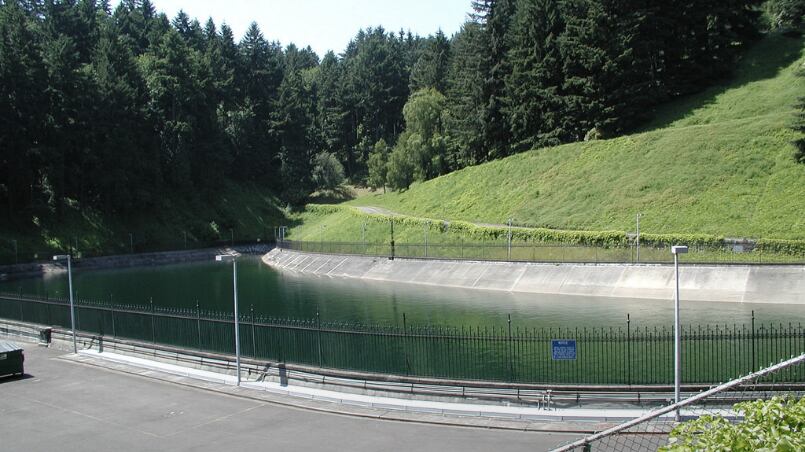Dr. Know has been kidnapped by Krampus. While he struggles to escape, we look back on his very first column on newsstands this decade. It ran on Dec. 30, 2009.
So, bird poop was responsible for the E. coli contamination in the Washington Park reservoir. Birds poop in there all the time; why doesn't this happen more often?–Kat H., Portland
This is a difficult question to answer: not because it's technically complicated, but rather because it's going to seem like I'm advocating that everyone should drink a big, frosty mug of bird shit.
There's actually a fair bit of controversy about drinking our water straight out of reservoirs that any passing bird can take a dump in, and some folks, notably those in the reservoir-covering biz, think we should stop. But it turns out that the arguments in favor of open reservoirs go well beyond the two you already knew about—"they look cool" and "covering them would be expensive."
"The EPA has never documented any public health consequences to having open reservoirs," says Floy Jones, of Portland's Friends of the Reservoirs. And burying the reservoirs opens us up to problems we don't currently have to worry about, including nitrification (which is prevented by sunlight) and the formation of biofilms (which are just as disgusting as they sound).
The EPA does have regulations that make it tough for open reservoirs, but the Friends say the rules are designed to prevent problems (specifically, a parasite called cryptosporidium) that's been rarely detected in our Bull Run water, only at very low levels, and never since 2002. The City has applied for a variance from the EPA that should keep them from meddling with our precious bodily fluids, at least for now.
The most persuasive argument for open reservoirs is that we've had 'em for 100 years, and no one's died yet. Boil orders are rare—remember, this last one turned out to be a non-infectious false alarm.
So shut up and drink your birdshit. It's good for you.
UPDATE: This city's fight against nitrification was in vain. As Dr. Know noted in 2016: "We had to build new, covered reservoirs, which recently went into full operation. The Mount Tabor reservoirs are being preserved as a historic heritage site, but they don't supply drinking water anymore."

